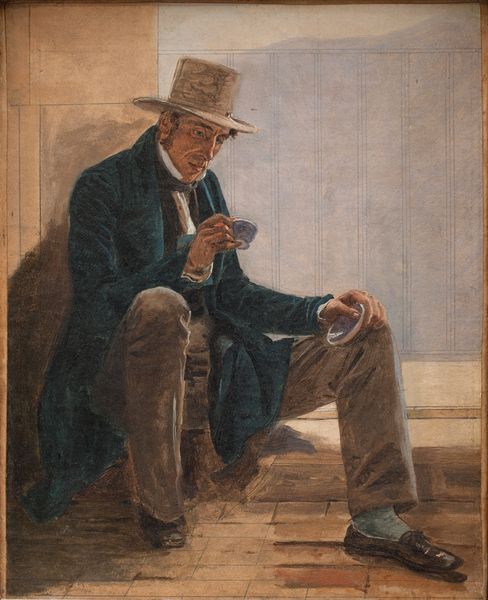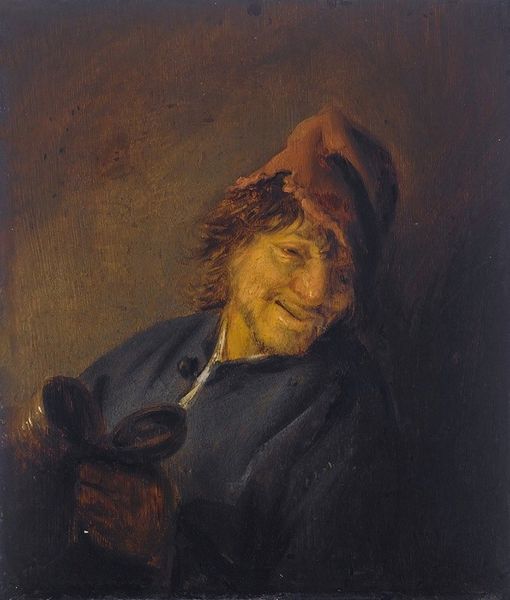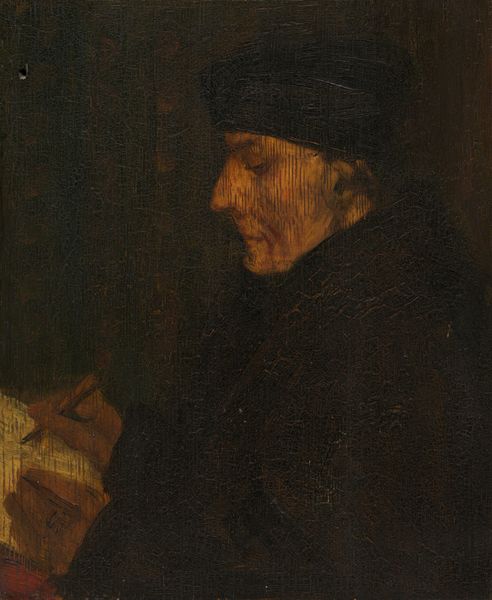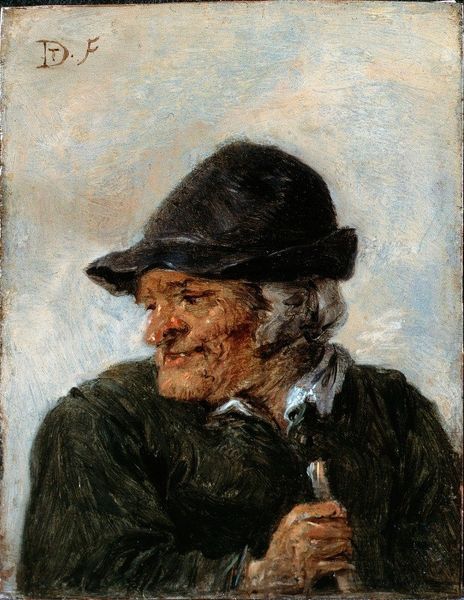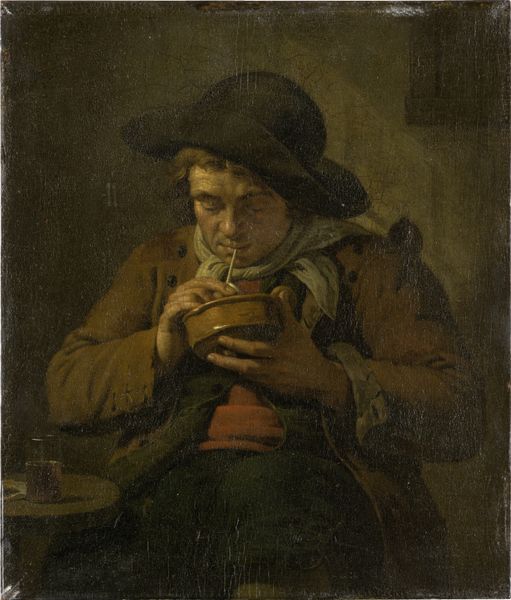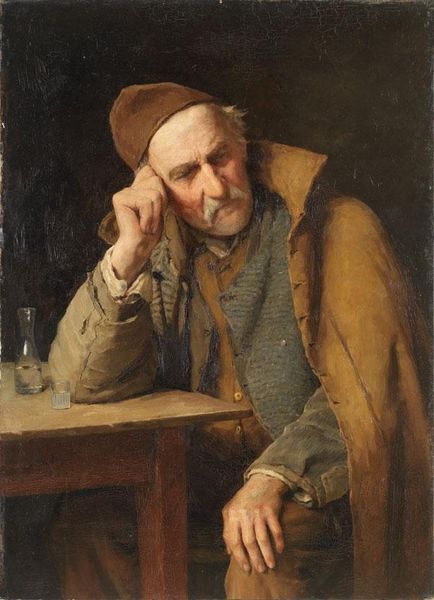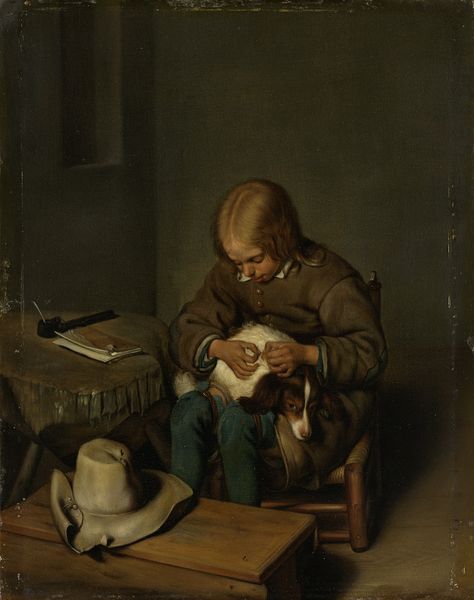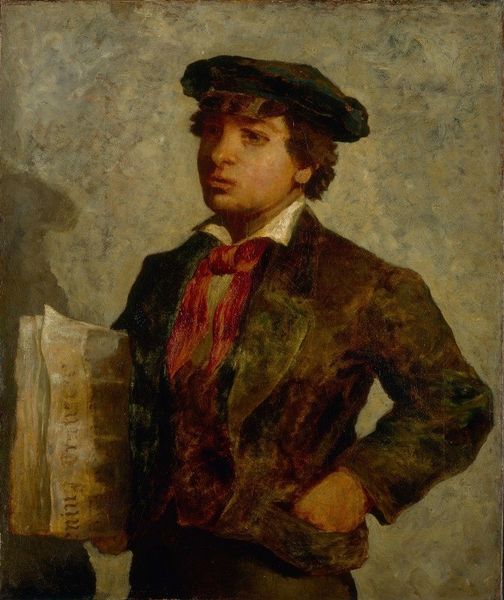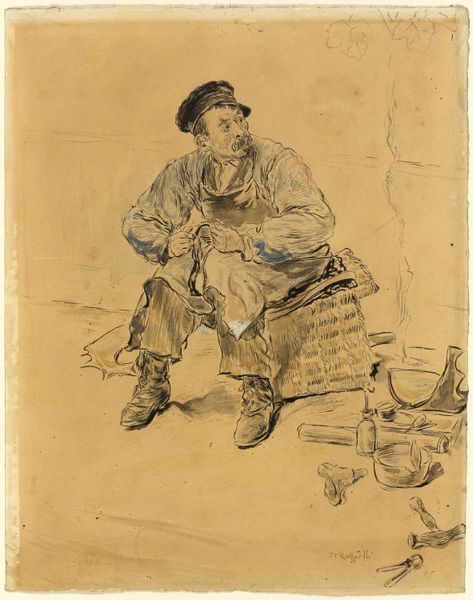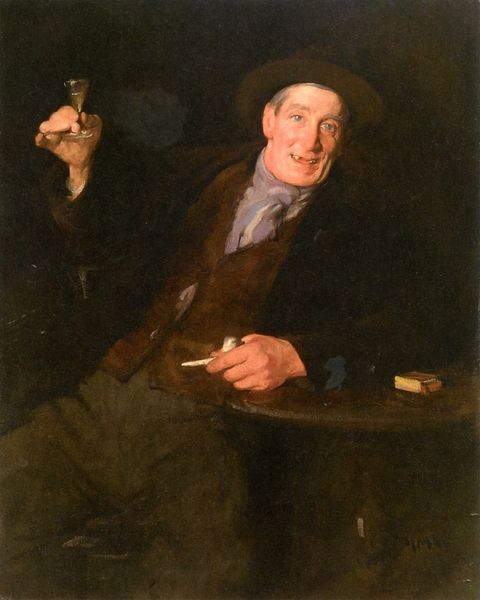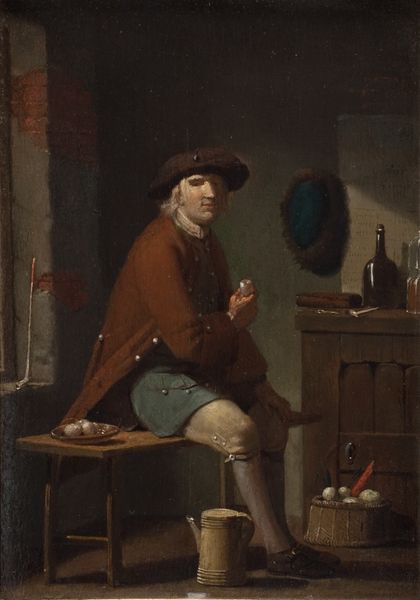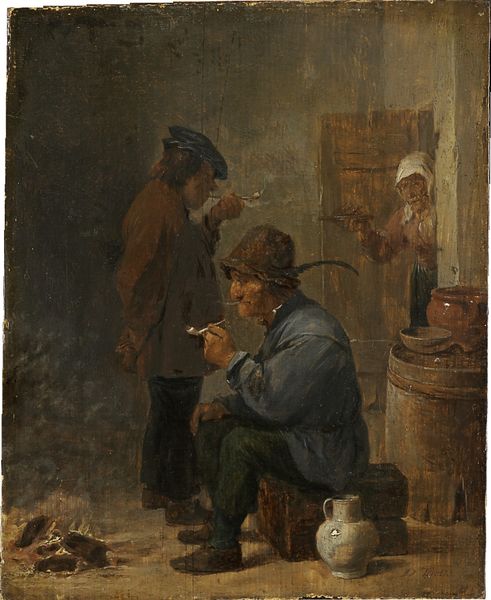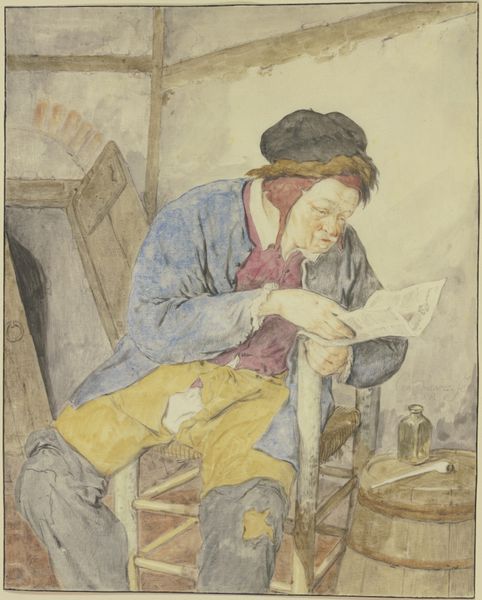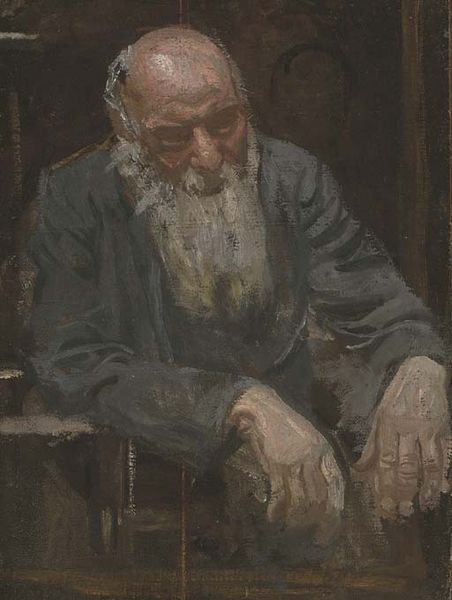
painting, oil-paint
#
portrait
#
dutch-golden-age
#
painting
#
oil-paint
#
genre-painting
Dimensions: 10 1/8 x 8 1/2 in. (25.7 x 21.6 cm)
Copyright: Public Domain
Editor: This is Adriaen van Ostade’s "Man with a Tankard," an oil painting dating from the latter half of the 17th century. The man's downward gaze and the simple materials create such an intimate scene. What captures your attention in this piece? Curator: I find myself considering the labor involved, not just in its creation but also in depicting this man's leisure. The tankard itself, undoubtedly made by skilled metalworkers, speaks to a whole network of production and consumption. Van Ostade is showing us more than just a portrait; it is the material culture of the Dutch Golden Age. Where did such a tankard originate? Editor: I hadn’t considered the actual tankard before. I was focused on the man and his simple clothing. Curator: Notice, also, the brushstrokes, how they are rendered versus the clothes he is wearing and hat he is wearing. Ostade is making a commentary on how labor makes class distinction. The brushstrokes give away Ostade's hand and time. Editor: So, you are saying the roughness and imperfections were deliberately left in the image? Curator: Precisely! By focusing on those raw elements—the materials, the making, the daily life depicted—we understand that art isn't detached from everyday processes or concerns. Editor: I see now; thinking about how it was all made changes the piece. It connects art and labor in a more immediate way. Curator: Exactly. By recognizing these aspects of labor, material, and class, we start to unpack a bigger statement that van Ostade is conveying to its original Dutch Golden Age viewership and onward through us today.
Comments
No comments
Be the first to comment and join the conversation on the ultimate creative platform.
